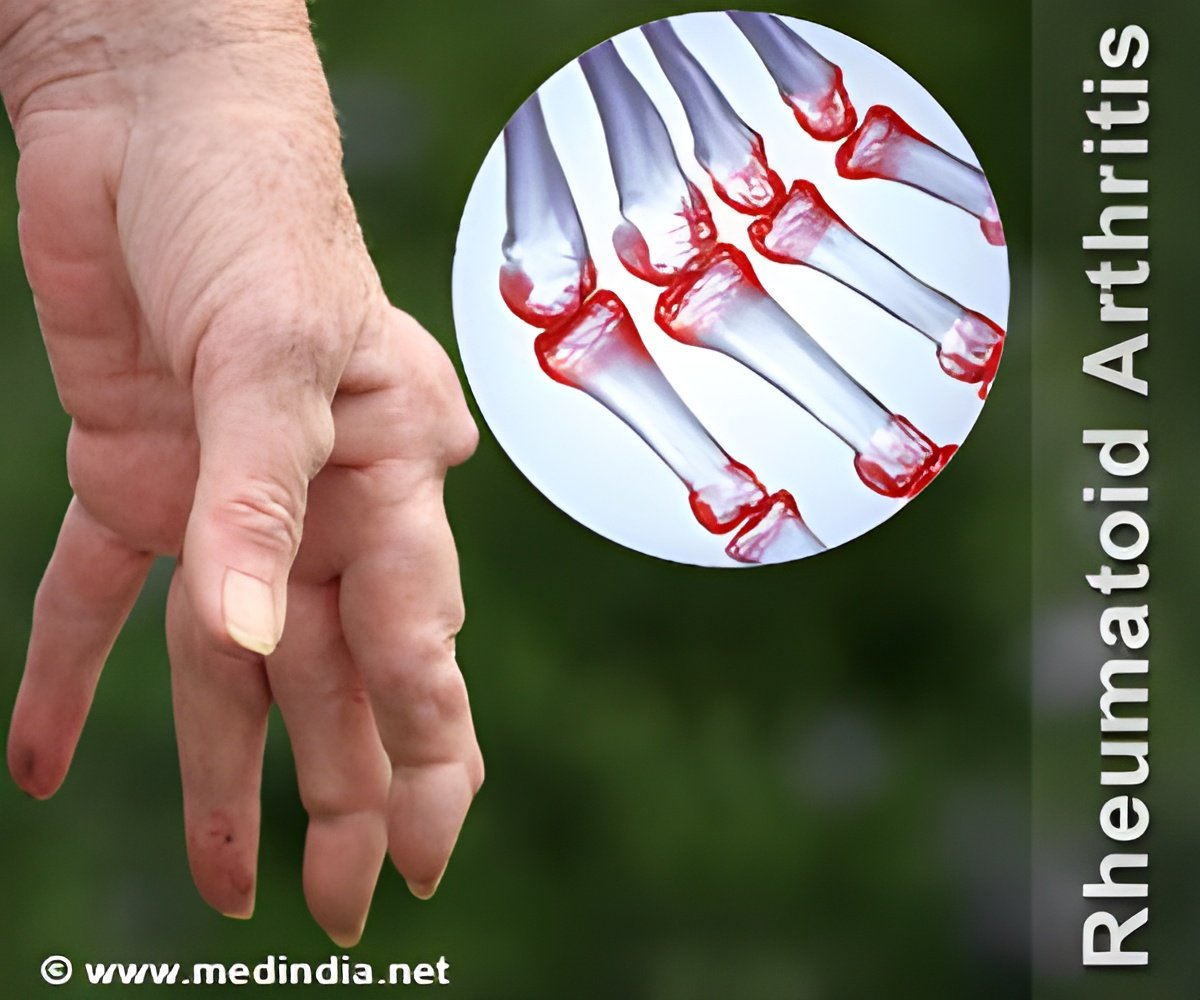Assay that helps to measure the underlying autoimmunity in debilitating inflammatory joint disease has been developed.

- Current care for autoimmune conditions like rheumatoid arthritis (RA) focuses on use of drugs that reduce the swelling and inflammation and not curing the condition.
- Current confirmatory blood test for RA is to look for autoantibodies called anti-citrullinated protein antibodies (ACPAs).
- The new assay developed helps to detect the APCA-secreting memory B cells in the blood of patients with these autoantibodies suggesting that current drug treatments do not affect the underlying autoimmunity in rheumatoid arthritis.
Between 1995-2007, 41 per 100,000 people were diagnosed with RA in U.S annually.
The current standard of care begins with a drug that reduces inflammation, called methotrexate. This is followed by another class of drugs that block a molecule called tumor necrosis factor (TNF), which also promotes inflammation.
Though both these classes of drugs help in reducing the swelling and inflammation associated with rheumatoid arthritis and at times even allow patients to go into clinical remission that requires continued treatment, discontinuing these medications often results in relapse of symptoms.
These findings suggest that the current drugs used do not alter the underlying autoimmune mechanism in RA.
The findings are according to research conducted at NYU Langone Medical Center and the University of Pittsburgh.
Role of Immune B Cells
Researchers focused on "memory" B cells. As the name suggests, these immune cells that remember the initial errant immune encounter that recognized the body's own proteins as foreign.
In RA, memory B cells secrete molecules called anti-citrullinated protein antibodies (ACPAs).
The current confirmatory blood test for RA is to look for ACPAs, which are present in 80% of RA patients.
In order to detect a range of different autoantibodies produced by B cells in the disease, researchers developed sensitive assays and they stimulated memory B cells using cell culture system.
On testing blood samples from RA patients and from healthy donors, researchers found high levels of APCA-secreting memory B cells in the blood of patients with these autoantibodies. But the blood of healthy donors was devoid of the APCA-secreting memory B cells.
On checking patients in remission, researchers found that APCA levels were directly proportional to the recirculating memory B cells in the blood stream, confirming that current drug treatments do not affect the underlying autoimmunity in rheumatoid arthritis.
Future work includes conducting long-term prospective clinical trials of new RA drugs, using the team's new test to determine each drug's effect on autoimmunity.
"We need to develop longer-term vision of how to improve the treatment of rheumatoid arthritis," Silverman says. "This new tool may show that agents that target other molecules or cells have advantages that were previously not considered now that we can better measure those effects."
The results of the study is published in Arthritis & Rheumatology.
Reference
- Rheumatoid Arthritis (RA) - (https://www.cdc.gov/arthritis/basics/rheumatoid.htm)
Source-Medindia















